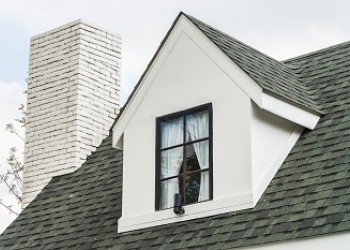Dwelling Defects Act - Helpful to Both Contractors & Homeowners

It has been ten years since the "South Carolina Notice and Opportunity to Cure Construction Dwelling Defects Act" was passed by the General Assembly and signed into law by Governor Sanford. The Act was adopted as a "tort reform" measure to preclude contractors from getting sued without first having an opportunity to correct alleged defects in the construction or renovation of residential dwellings. Though a decade old, many contractors, homeowners and attorneys often overlook its applicability. In fact, there is only one reported appellate court case applying and interpreting this Act.
The Act defines a "construction defect" as "a deficiency in or a deficiency arising out of the design, specifications, surveying, planning, supervision, or observation of construction or construction of residential improvements that results from any of the following:
(a) defective material, products, or components used in the construction of residential improvements;
(b) violation of the applicable codes in effect at the time of construction of residential improvements;
(c) failure of the design of residential improvements to meet the applicable professional standards of care at the time of governmental approval of the design of residential improvements; or
(d) failure to construct residential improvements in accordance with accepted trade standards for good and workmanlike construction at the time of construction. Compliance with the applicable codes in effect at the time of construction conclusively establishes construction in accordance with accepted trade standards for good and workmanlike construction, with respect to all matters specified in those codes.
The statute is codified at as S.C. Code § 40-59-840 and provides the procedure in which a claim should be made:
In an action brought against a contractor or subcontractor arising out of the construction of a dwelling, the claimant must, no later than ninety days before filing the action, serve a written notice of claim on the contractor. The notice of claim must contain the following: (1) a statement that the claimant asserts a construction defect; (2) a description of the claim or claims in reasonable detail sufficient to determine the general nature of the construction defect; and (3) a description of any results of the defect, if known. The contractor or subcontractor shall advise the claimant within fifteen days of receipt of the claim if the construction defect is not sufficiently stated and shall request clarification.
Once the notice of the claim is mailed, the contractor has thirty days from service of the notice to inspect, offer to remedy, offer to settle with the claimant, or deny the claim regarding the defects. Further the claimant must allow the contractor access to the property for inspection of the defect and if repairs have been agreed to by the parties, reasonable access to affect repairs. Failure to respond within thirty days is deemed a denial of the claim.
The claimant shall serve a response to the contractor's offer within ten days of receipt of the offer. All communication between the contractor and claimant must be confirmed in writing. The Act states the original notice of claim and contractor's election on how it will proceed must be sent via certified mail. If the parties cannot settle the dispute pursuant to this article, the claimant may proceed to file a lawsuit.
The statutory process is elementary and merely codifies common sense - people need to communicate to see if they can resolve their disputes before litigating. The Act however seems to create a number of unintended consequences which are detrimental primarily to homeowners. For example, must a claimant serve notice on a contractor who is defunct; should a claimant be excused for providing a right to cure if the contractor has already been made aware of the construction defects and refused to remedy them; should a claimant be allowed to counter sue in a claim brought by the contractor for non-payment despite not providing notice under the Act; should a claimant be precluded from suing if there a exigent circumstances such that repairs must be made immediately and there is not time to comply with the time periods set forth in the Act; should the claimant be excused for allowing the contractor to cure defects if there has been intervening circumstances involving the contractor such as criminal law violations or wide spread complaints of the contractor's work product.
The one reported case interpreting the Act is Grazia v. South Carolina State Plastering, LLC, 703 S.E.2d 197, 390 S.C. 562 (S.C. 2010) and the Act was used to defeat a homeowner's ability to pursue a class action by the Plaintiff. The homeowner in Grazia was complaining of defective exterior stucco work by South Carolina State Plastering, LLC in the construction of his and approximately 2,673 other homes in a development called Sun City. The Supreme Court held that not only did the Plaintiff have to comply with the notice requirements of the Act but each class member did too. Until there was compliance, the class action could not proceed, only individual and separate lawsuits by each class member provided they had complied with the Act.
Despite the good intentions of the Act, it creates a number of issues that will need to be resolved by the courts or legislature. However, until then, the Act may be useful to both contractors and homeowners in resolving disputes. The two underlying mandates of the Act, a cooling off period and forced communication, are good rules of thumb in resolving any disputes and ones which I encourage all to apply in any controversy.
~ Gary I. Finklea (July 2013)
